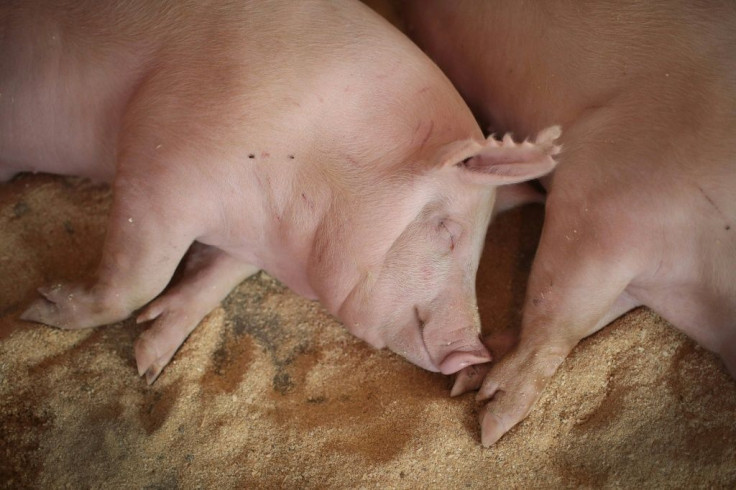China Buys 'Considerable' Amount Of US Pork, Soybeans

Beijing said Thursday it had bought a "considerable" amount of US pork and soybeans, the latest sign of appeasement between the two sides in the drawn-out trade war.
The US and China have been locked in a bruising trade war for more than a year, with the world's two biggest economies slapping tariffs on hundreds of billions of dollars in bilateral trade.
China is also facing a severe shortage of pork -- a staple food in the country -- because of an outbreak of African swine fever which has raced through its hog supply and pushed prices up by 50 percent.
"Recently Chinese enterprises have ... started price inquiry and purchases of US agricultural products, and have also completed a transaction of soybeans and pork of considerable size with the US," said commerce ministry spokesman Gao Feng at a regular press briefing.
Gao said "China's market demand for high quality agricultural products is very large" and that he hoped the two sides could "create beneficial conditions for cooperation."
Earlier in September, China said high-profile US agricultural products including pork and soybeans would be exempt from added tariffs, ahead of the next round of trade talks scheduled for October.
It marked easing tensions between the world's two biggest economies.
Appeasement
American farmers have borne the brunt of the US-China trade spat, especially after US soy exports collapsed last year.
President Donald Trump has previously accused Beijing of backsliding on promises to increase purchases of US farm goods and has offered billions in aid to farms badly damaged in the trade war.
China's conciliatory move to exempt pork and soybeans followed an unexpected announcement from Trump that he would postpone an October 15 tariff increase on Chinese products representing $250 billion in annual imports.
Tensions between the two have ebbed and flowed since then, with Trump criticising Beijing in a speech at the United Nations this week over its trade policy and approach to pro-democracy unrest in Hong Kong.
The US president declared in his speech that the time of Beijing's "abuses" of the system was "over."
"For years, these (trade) abuses were tolerated, ignored, or even encouraged," he said in his UN speech, arguing that globalism had caused world leaders "to ignore their own national interests.
But a day later he sounded a more upbeat tone, cheering markets with comments that a trade deal with China could come sooner than thought.
© Copyright AFP 2024. All rights reserved.







